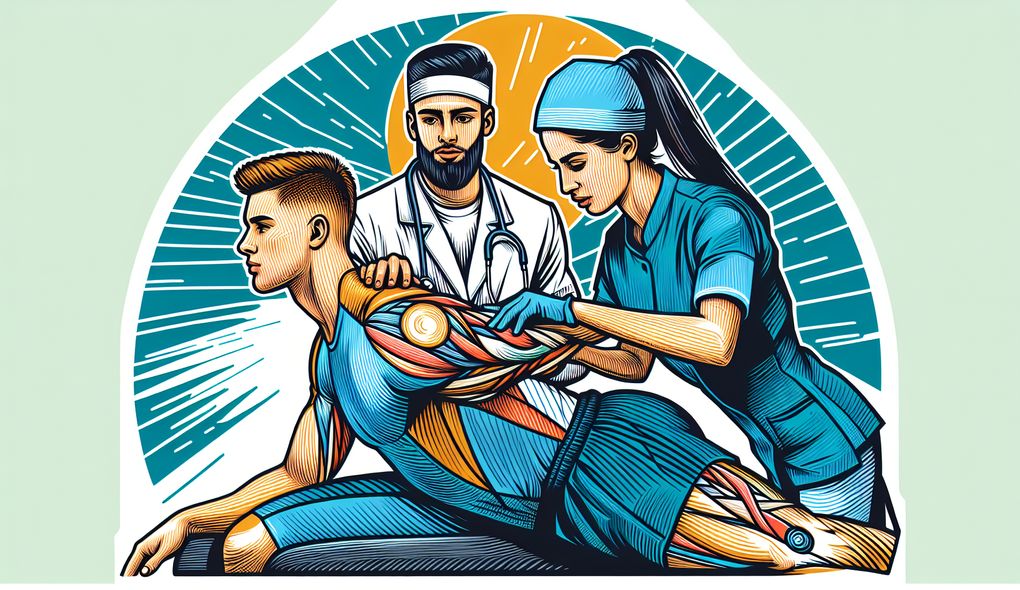Describe a time when you had to think quickly and make a split-second decision in your work as a sports physiotherapist.
JUNIOR LEVEL

Sample answer to the question:
One time, during a soccer match, I had to think quickly and make a split-second decision as a sports physiotherapist. One of the players suffered a severe ankle sprain and was in excruciating pain. I immediately rushed onto the field, assessed the injury, and quickly decided to immobilize the ankle using a splint. This decision helped prevent further damage and provided immediate relief to the player. I then guided the player off the field and applied ice to reduce swelling. I continued to monitor the player's condition and provided ongoing treatment and rehabilitation until they made a full recovery.
Here is a more solid answer:
As a sports physiotherapist, I frequently encounter situations that require quick thinking and split-second decision-making. One such instance was during a high-intensity basketball game, where a player dislocated their shoulder. Recognizing the urgency of the situation, I immediately rushed to the player's side, immobilized the shoulder, and assessed the severity of the injury. With my extensive knowledge of sports injuries and rehabilitation techniques, I quickly decided to relocate the shoulder using appropriate manual manipulation. This decision not only provided immediate relief to the player but also prevented further complications. Throughout the process, I collaborated closely with the team's medical staff, including the team doctor and athletic trainers, to ensure a coordinated and effective treatment plan. The player made a full recovery and was back on the court within a few weeks.
Why is this a more solid answer?
The solid answer includes specific details about the sports injury (dislocated shoulder), the technique used for treatment (manual manipulation), and the collaborative effort with the team's medical staff. However, it can further improve by providing more information about the communication and coordination involved in the decision-making process.
An example of a exceptional answer:
In my role as a sports physiotherapist, quick decision-making is a crucial skill. I recall a time during a professional rugby match when a player suffered a neck injury due to a tackle. The player was lying unconscious on the field, and it was essential to act swiftly to avoid further harm. With my extensive knowledge of sports injuries and immediate medical attention, I approached the player cautiously and assessed their condition. Based on my assessment, I made a split-second decision to stabilize the player's neck and spine using manual immobilization techniques while ensuring assistance from the team's medical staff arrived promptly. We carefully transferred the player onto a spine board and immobilized them to minimize the risk of further injury during transportation. Throughout this intense situation, effective communication was vital to coordinate with the team doctor, paramedics, and the referee to ensure the player's safety. This incident emphasized the criticality of remaining calm, assessing the situation objectively, and making swift decisions based on my expertise in sports injury management.
Why is this an exceptional answer?
The exceptional answer demonstrates not only the candidate's quick thinking and split-second decision-making but also highlights their ability to handle a high-pressure situation involving a severe injury (neck injury). The answer also emphasizes effective communication and collaboration with the team's medical staff, paramedics, and other stakeholders. Additionally, it emphasizes the candidate's expertise in sports injury management and their ability to remain calm and objective in intense situations.
How to prepare for this question:
- Familiarize yourself with different types of sports-related injuries and their corresponding treatment techniques.
- Study and practice decision-making in high-pressure situations, such as through role-playing scenarios.
- Develop effective communication skills to collaborate with other healthcare professionals and team members during emergencies.
- Stay updated with the latest advancements and best practices in sports physiotherapy by attending relevant workshops and conferences.
- Review case studies and reflect on past experiences to learn from real-life scenarios and enhance your problem-solving abilities.
What are interviewers evaluating with this question?
- Knowledge of sports injuries and rehabilitation techniques
- Problem-solving and critical-thinking skills
- Ability to work in a team environment

